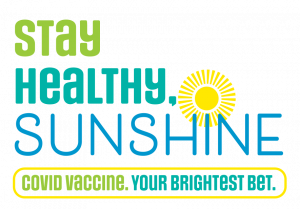Southeast Florida’s Season for RSV Runs Year-round
It’s important that residents understand the signs and symptoms of RSV and stay home if they are sick to help stop the virus spread”
PALM BEACH GARDENS, FLORIDA, UNITED STATES, January 23, 2024 /EINPresswire.com/ -- Tracking data from the Centers for Disease Control (CDC) shows that Florida’s respiratory syncytial virus (RSV) season is longer than the rest of the nation. RSV is a common respiratory virus that usually causes mild, cold-like symptoms. Young children and older adults, especially those with certain underlying health conditions, are at higher risk for severe illness.— Andrea Stephenson, CEO of the Health Council of Southeast Florida
Because of our state’s warmer climate, there are five seasons for RSV across Florida based on virus activity thresholds provided by the CDC. The seasons are Northwest (October-April), North (September-March), Central (August-March), Southeast (January-December), and Southwest (September-April).
“It’s important that residents understand the signs and symptoms of RSV and stay home if they are sick to help stop the virus spread,” says Andrea Stephenson, CEO of the Health Council of Southeast Florida, whose goal is to provide residents with information to help enhance public health.
Southeast Florida’s RSV season is the longest and runs year-round. Pregnant people, infants, and older adults are encouraged to take the RSV vaccine. More information is available on the CDC website: https://www.cdc.gov/vaccines/vpd/rsv/index.html.
Common RSV symptoms typically show within 4 to 6 days, including runny nose, sneezing, fever, coughing, wheezing, and decreased appetite. People infected with RSV are usually contagious for 3 to 8 days and may become contagious a day or two before showing signs of illness. Although most infections resolve in a week or two, it is essential to drink enough fluids to prevent dehydration. Talk to your healthcare provider before giving your child non-prescription cold medicines or pain relievers like acetaminophen or ibuprofen, as some may contain ingredients that are not good for children.
Visit stayhealthysunshine.org for a reliable source of updated information and facts, a vaccination-finder link, a list of Florida’s 11 Local Health Councils, and connections to assistance for COVID-related needs.
Catch the rays on Instagram and Facebook:
Instagram: @stayhealthysunshine
Facebook: stayhealthysunshine
#StayHealthySunshine #YourBrightestBet
Andrea Stephenson
Health Council of Southeast Florida
+1 561-844-4220
email us here
Visit us on social media:
Facebook
Twitter
LinkedIn
Instagram
Legal Disclaimer:
EIN Presswire provides this news content "as is" without warranty of any kind. We do not accept any responsibility or liability for the accuracy, content, images, videos, licenses, completeness, legality, or reliability of the information contained in this article. If you have any complaints or copyright issues related to this article, kindly contact the author above.

